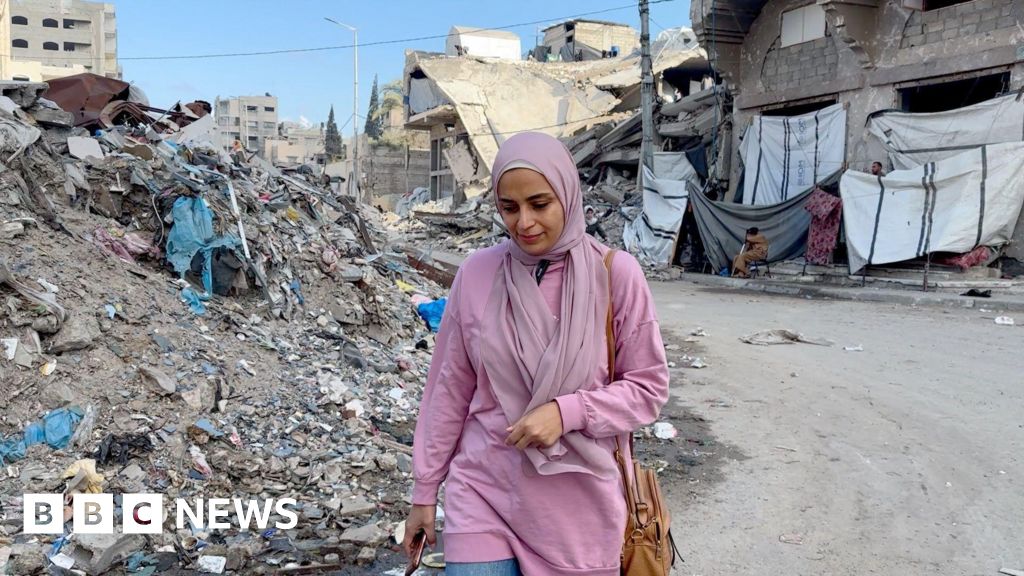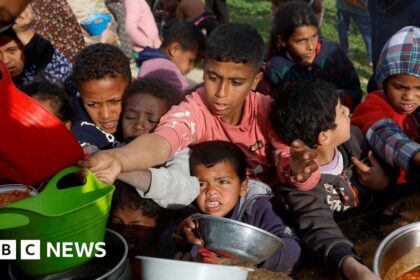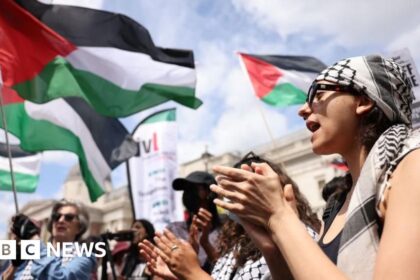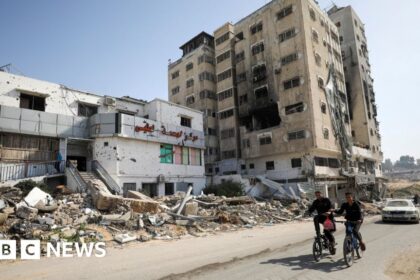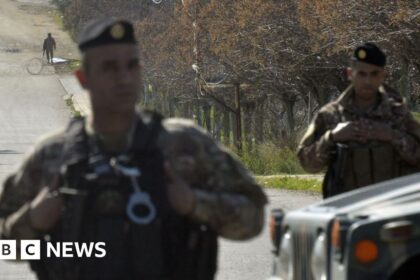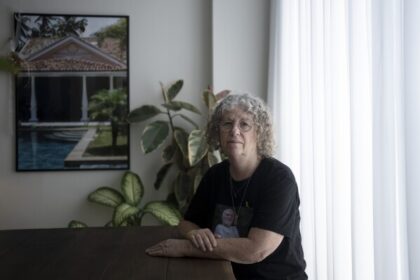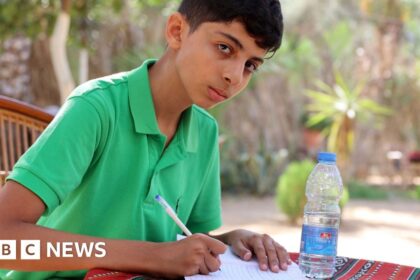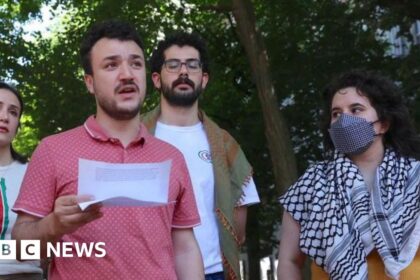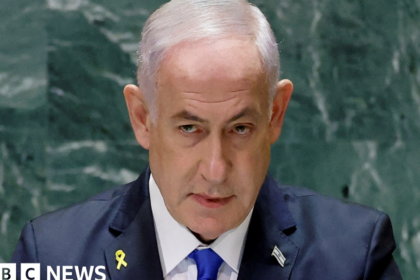**Gaza’s Healthcare System on Brink of Collapse**
The 18-month conflict between Israel and Hamas has taken a devastating toll on Gaza’s healthcare system. A report by the BBC reveals the dire situation, following a GP during her shift at a Medecins Sans Frontieres (MSF) clinic.
Dr Wissam Sukkar, a GP, starts her day with a 50-minute walk through Gaza City, due to the lack of fuel for taxis. She explains that with limited resources, her team is doing their best to provide healthcare in Northern Gaza despite the challenges. “We’re trying our best to be here during these difficult times,” she says.
The situation is dire, with only 21 out of 36 hospitals functional, according to the World Health Organization (WHO). The Israeli blockade has caused a severe shortage of medical supplies, making it impossible for Dr Sukkar and her team to provide adequate care. “We don’t even have basic medicines such as anti-fever drugs for diabetes,” she laments.
The clinic, which was converted from an office, is overcrowded with 150 patients waiting outside by 9:30 am. Most of the patients are displaced persons living in shelters and tents on the streets. Malnutrition and diseases like scabies and stomach bugs are on the rise due to lack of food and clean drinking water.
Dr Sukkar’s team sees dozens of patients in less than an hour, struggling to help many of them. “We’re facing more and more challenges as we have a growing number of patients and less and less medical equipment,” she says. The clinic is also overwhelmed with complicated cases, but the health system has collapsed in Gaza.
Since last Sunday’s bombing of the al-Ahli Arab Hospital, there has been a steady influx of seriously injured patients at the clinic. Israel accused Hamas of using the hospital as a “command-and-control centre”, which was denied by the armed group.
**Commentary and Analysis**
The situation in Gaza is nothing short of catastrophic. The healthcare system is on the brink of collapse, with limited resources and severe shortages of medical supplies. Dr Sukkar’s story highlights the human cost of the conflict, where civilians are forced to live in shelters and tents, without access to basic necessities like food, water, and electricity.
The Israeli blockade has not only affected the healthcare system but also the daily lives of Gazans. Dr Sukkar’s struggles to provide clean water and food for her children are a stark reminder of the situation on the ground.
**What Next?**
The international community must take immediate action to address the humanitarian crisis in Gaza. The Israeli government must lift the blockade, allowing aid to enter the territory. Additionally, donors must step up to support the healthcare system, providing much-needed medical supplies and equipment.
Until then, Dr Sukkar’s clinic will continue to operate on a shoestring budget, struggling to keep up with the demand for care. The future of Gaza’s healthcare system hangs in the balance, as the conflict shows no signs of abating.
Read More @ www.bbc.com




